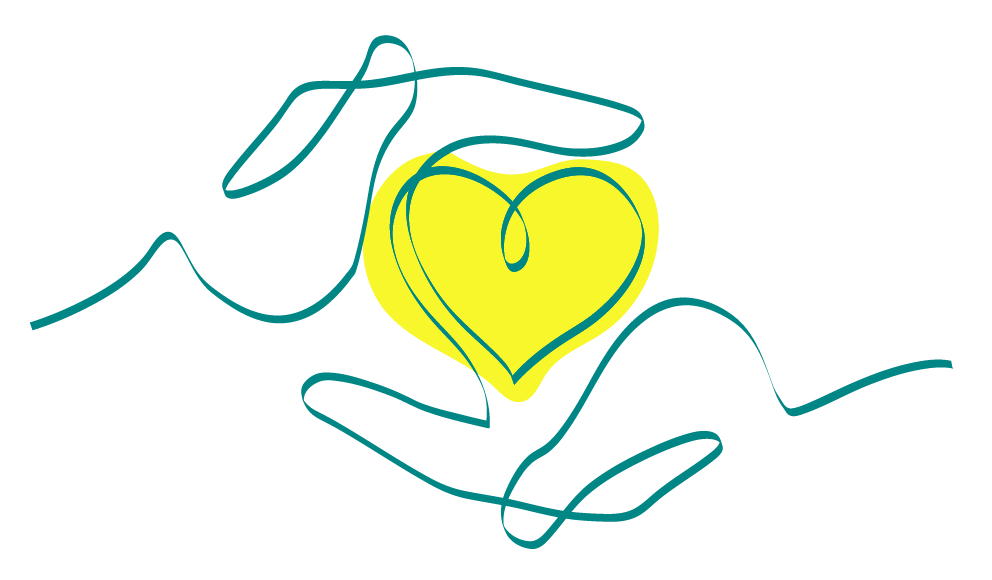Where we believe that mental and emotional well-being should be accessible to all. We are committed to promoting mental health, enhancing learning, and optimising performance through a wide range of tailored and evidence-based programs and services to meet the diverse needs of both B2B and B2C clients. With our commitment to inclusivity and fostering acceptance for all, we design comprehensive customised services that include therapeutic intervention, professional development workshops & training, Special Needs resource room support, career counselling, organizational development and end-to-end support for the Prevention of Sexual Harassment & Child Safety (PoSH & POCSO). By addressing unconscious biases, promoting diversity and equity, and providing tailored long-term solutions, we help create environments where everyone feels valued and supported.

Carpediem was founded in 2021 with a simple yet profound belief - mental and emotional well-being is not a luxury, but a fundamental human right. Our founders, a team of passionate women, envisioned a world where everyone can access the support they need to navigate life’s challenges and unlock their potential.
Embracing diversity is at the heart of everything we do. We understand that true well-being is deeply personal—there’s no one-size-fits-all solution. Drawing on diverse skillsets and experiences, we work with individuals and organizations to customise solutions that resonate with the unique needs. Our journey is fuelled by active research and meaningful client feedback, helping us refine and evolve our services to stay impactful and relevant.
With every step forward, we aim to create self-thriving ecosystems that not only nurture well-being but also empower personal growth. Therefore, we don’t just envision a better future—we work to build it. One tailored solution, one thriving individual, one inclusive community at a time.
This is more than our story; it’s a shared mission to bring well-being and growth into the lives of many.


We cater to a wide range of demographics including children, parents & caregivers, corporates, educational institutions, professionals, couples and families.

We listen to the ‘Voice of the Customer’, understand their specific needs and design programs to suit their requirements.

Our team comprises certified professionals and qualified experts with niche expertise.

We focus on constantly upskilling ourselves through contemporary research in order to contribute to the field of education & mental well-being.

Promoting mental well-being through advocacy and capacity building.

We collaborate with other allied professionals & organizations on a long-term basis to create synergies and offer greater value through holistic services to all those who reach out to us.


Children

Educators, Administrators & Institutions

Bachelor & Master Students

Parents

Professionals

Corporates

Caregivers






In the hustle and bustle of our daily lives, it's easy to get caught up in the never-ending to-do lists, deadlines, and the constant pursuit of our goals. However, taking a moment to pause and reflect on the things we're thankful for can be a powerful exercise in cultivating gratitude. Gratitude, the simple act of acknowledging and appreciating the positive aspects of our lives, has the potential to bring about profound changes in our overall well-being. The Power of Gratitude - Gratitude is not just a fleeting emotion; it's a mindset that can be developed and nurtured over time. Research has shown that practicing gratitude can lead to a multitude of benefits, both physical and psychological. From improved mental health to enhanced relationships and even better sleep, the effects of gratitude are far-reaching.Health and Well-being- One of the most compelling reasons to embrace gratitude is its positive impact on our health. When we take the time to recognize and express thanks for the good things in our lives, our stress levels tend to decrease. Lower stress, in turn, has been linked to a stronger immune system, better cardiovascular health, and improved overall well-being.Relationships and Connection- Gratitude also plays a pivotal role in strengthening our relationships. Expressing thanks to the people around us fosters a sense of connection and builds a positive atmosphere. Whether it's a heartfelt "thank you" to a friend who offered a listening ear or a note of appreciation to a family member, these small gestures can deepen our connections with others.Personal Growth and Resilience- Acknowledging what we're thankful for can be a powerful tool for personal growth and resilience. In challenging times, focusing on the positive aspects of our lives can help shift our perspective. It's not about denying the difficulties we face but rather about finding strength and resilience in the face of adversity.What Am I Thankful For?As I take a moment to reflect on what I'm thankful for, a myriad of thoughts and emotions flood my mind. At the top of my list is the unwavering support of my family. Their love and encouragement have been the bedrock of my journey, providing me with the strength to navigate life's ups and downs.I'm thankful for the friendships that have stood the test of time and distance. These relationships have been a source of joy, laughter, and shared experiences. In a world that often feels chaotic, having a network of supportive friends is a treasure beyond measure. Career milestones and achievements also find a place on my gratitude list. The opportunities to learn, grow, and contribute in my professional life have not only shaped my identity but have also allowed me to make a positive impact on others. The challenges I've faced in my career have been instrumental in my personal development, teaching me resilience and perseverance.Nature's wonders are another source of gratitude in my life. The breathtaking beauty of a sunrise, the calming presence of a forest, or the rhythmic sound of ocean waves – these natural wonders remind me of the magnificence of the world we live in. They offer moments of solace and reflection in a fast-paced world. Health, often taken for granted, is a gift that I am profoundly thankful for. The ability to wake up each day, to move, to breathe, and to experience life in all its richness is a blessing that deserves acknowledgment. It's a reminder to cherish and take care of the vessel that carries us through our life's journey.Cultivating Gratitude in Daily LifeWhile reflecting on what I'm thankful for is a valuable exercise, incorporating gratitude into my daily life is equally important. Here are a few practices that have helped me cultivate gratitude:1. Keeping a daily or weekly gratitude journal allows me to jot down the things I'm thankful for. It serves as a tangible reminder of the positive aspects of my life.2. Taking the time to express my gratitude to others has become a regular part of my routine. Whether through a simple "thank you" text or a heartfelt note, expressing appreciation strengthens my relationships.3. Incorporating mindfulness into my daily life has been transformative. Taking a few moments each day to pause, breathe, and reflect on the present helps me appreciate the small joys that often go unnoticed.4. Engaging in acts of kindness, whether big or small, not only benefits others but also brings a sense of fulfillment and gratitude. It's a reminder of the positive impact we can have on the world around us.In a world that often emphasizes the pursuit of more, taking a step back to recognize and appreciate what we already have can be a game-changer. Gratitude is not just a one-time reflection but a continuous journey of acknowledging the richness of our lives.As I delve into the depths of what I'm thankful for, I am reminded that gratitude is a dynamic force. It has the power to transform our perspective, enhance our well-being, and foster connections with the world and those around us. So, what am I thankful for? The answer is a tapestry woven with the threads of love, connection, opportunity, and the beauty that surround us everyday. Contributed by Avinash Naik, who is currently pursuing Bachelor of Science in Psychology at Krea University. His interests include writing poetry and theatre.Carpediem would like to acknowledge the use of photo by Johnhain on Pixabay
When we talk about mental health an area that generally does not get enough coverage and importance is mental health in Men. They are often expected to be strong, unwavering pillars of support for others, which might deter them from getting the mental health care they need. If males confess to having depression or other mental health problems, they could worry about being stigmatized or viewed as less manly. Through time and history we have seen many great men who despite suffering from mental health issues have also achieved success in their respective fields . some while they were alive and some after their time. Van Gogh is a classic example of a great creative mind and artist whose work sells for millions now. His art came out of great mental turbulence and poor mental health. There have been many creative and brilliant minds among men who have, despite their mental health issues, been pioneers of great work. John Nash is also another great example who made contributions in Mathematics and was also awarded the Nobel Memorial prize, John von Neumann theory prize etc. His struggles with schizophrenia and his recovery was made into an Oscar winning movie named Beautiful Minds.Now let us take a deeper look into living with schizophrenia and it’s gender based stigma to have a better understanding:Understanding the various elements that impact stigma in schizophrenia is crucial for effective treatment of the condition. Men with schizophrenia said they were single, that they concealed their condition from others and on job applications, and that they felt ashamed and ridiculed. They stated that the worst venues for them to suffer stigma were their places of employment. Women talked about how stigma affected their marriages, pregnancies, and deliveries. Both sexes disclosed certain cultural misconceptions regarding their illnesses and the detrimental effects they had on their lives.Men are more likely than women to develop schizophrenia, and they also tend to do so at a younger age—men typically get schizophrenia five years younger than women. Recent evidence suggests that genetic and biochemical factors associated with psychoses may also provide an increased propensity to think creatively.For as long as people have been writing things down, psychoses and creativity have been associated. Using mostly biographical and historical documents together with interviews, has shown more recently that there is a connection between mood problems and artistic creativity. These studies have a few drawbacks while providing strong data and an intriguing look into the family history of creative people. Firstly, while historical studies offer valuable motivation to explore the relationship between psychoses and creativity, they only focus on prominent figures from history, leaving out those who managed to elude the scrutiny of mainstream written records. Though there has long been a theory linking creativity with psychopathology, empirical research on this relationship did not start until the last century. Another example is Franz Kafka who wrote in a completely original style exploring existential ideas about life. The Trial and Metamorphosis are two of his better known stories. Kafka was a loner, a genius, who suffered from social anxiety and depression. In the honour of Franz Kafka, the Franz Kafka price was presented as an international literary award. To conclude he proves to be another classic example of how men who faced mental illness have worked through their challenges and societal stigma to still go ahead and carve a niche for themselves in their respective fields. This gives us some perspective on how men have dealt with the issue of mental illness through history and time.Contributed by Pavitra V.S, Grade 11 - EuroSchool HSRShe actively engages in animal rescuing and her interests include reading, crochet and kickboxing.Carpediem would like to acknowledge the use of photo by msandersmusic on Pixabay
26
Oct
Mental well being continues to be a taboo subject for many men and also regarding the mental well being of men particularly. Although mental health issues affect both genders, men’s mental health has generally received less attention and support. Men who express feelings of despair are labeled weak and unmanly by society causing their mental problems to be overlooked and go undiagnosed. The stigma associated with mental illness in men persists despite efforts to increase awareness of mental health issues in general. For a more insightful look into why the mental well-being regarding men is overlooked, we encroach upon this vital reason : Gender norms and the stigma attached Gender norms profoundly shape how we perceive mental health. These norms are what claim to determine expected and “normal” behavior for each gender that eventually influences mental well-being and mental health concerns. They tend to intensify the stigma attached to mental health regarding men. For example, a boy displaying vulnerability or crying will be encouraged to behave stronger and avoid showing such emotions. Women being relegated to a secondary role influences their outlook on mental well-being as well, generally terming them as irrational and sensitive as well as making them more prone to being prescribed medication. Our society tends to perpetuate gender conformity that leads to individuals having heightened levels of stress regarding their gender rigidness. Acknowledging the gender bias and gender norms that are prevalent in our society, will help ease their harmful effects on individuals and create a more supportive environment for all genders. Expectations of men that result in mental health problems Men have been told to be less emotional, act stronger and never show any weakness while simultaneously being expected to be the breadwinner of their family. Over working generally leads to heightened stress levels which can lead to other mental health conditions. Due to the society expectations that have been pushed on them men are less likely to seek out help for their mental health struggles. Instead, they choose to rely on unhealthy support systems like substance abuse and alcohol. This makes it crucial to encourage men to ditch the traditional gender roles so that they don’t develop an addiction to self medication and alcohol. Self stigma Men are generally conditioned to think they are less worthy or strong if they show signs of mental illness. They tend to devalue themselves which as a result is very harmful to their mental well-being. Due to this many men facing the stigma tied to their mental health result in simply ignoring or rejecting their mental health condition and hope it will go away without mention. Ways to support men’s mental well-being are : 1. Encourage men to talk openly about mental health- Social media has become a great medium to express oneself as well as a great space for positivity and inclusivity. It is a great source for stigma-busting support. 2. Finding a healthy support system- A community of people or an individual who allows you to express yourself comfortably is crucial. 3. Spread awareness- Choosing empowerment over shame is a vital step toward achieving our goal of minimizing and ending the stigma attached to men’s mental health. To conclude there is an undeniable correlation between mental health and gender roles revealing that men are less susceptible to mental health disorders yet when they are mentally ill, they are less likely to recover. Most of the reasoning can be linked to hegemonic masculinity, stereotypes, and stigma. In order to support men who are experiencing greater feelings of loneliness and despair and to remove the obstacles that prevent men from getting the treatment they need when they do, it is essential to improve the mental health of males through providing a supportive environment.Contributed by Pavitra V.S, Grade 11 - EuroSchool HSRShe actively engages in animal rescuing and her interests include reading, crochet and kickboxing.Carpediem would like to acknowledge the use of photo by Johnhain on Pixabay

Published in: Forbes
Mental health is one of the most pressing challenges of the 21st century. Mental disorders like depression, anxiety and stress-related disorders affect around 1 billion people worldwide, with cases rising each year. Traditional mental health care systems are struggling to keep up with the growing demand, leaving many without access to the support they need.Enter artificial intelligence (AI), virtual reality (VR) and augmented reality (AR). These technologies are revolutionizing mental health care, making therapy more accessible, personalized and effective.
Published in: The Guardian
When Jabez Allies developed chronic lower back pain 10 years ago, her doctor sent her to the physio, who recommended different types of stretching and exercises – some that helped, some that didn’t help at all – as well as hot-water bottles and painkillers.But as the pain got progressively worse every year, so too did Allies’ feelings of being overwhelmed – frustrated she couldn’t do the things she could before and spiralling into hopelessness that there was nothing she could do to fix it.(Image credit - freepik.com)
Published in: ScienceDaily
Children who grow up in disadvantaged neighborhoods -- areas with higher levels of crime and deprivation, and lower access to community resources -- are at risk of developing depression and new research led by faculty at Binghamton University, State University of New York, may help to explain why.(Image Credit - freepik)

Ms. Vasundhara Kaul is an enviable trainer, counsellor, guide, mentor, life coach amongst other roles she plays with so much ease and prowess.I had the opportunity, rather, the privilege to be trained by Ms. Kaul and her colleagues as part of a Special Education Needs session during our PGDIE course at Bangalore.
I found it very inspiring to see the zeal, enthusiasm, energy, drive and interest she took to ensure each and everyone in the class took away the maximum from every session and was always so patient with all our queries and doubts.

Dear Dr. Sharma,
The sessions which were conducted by you for the students of our school were very fruitful.
The insights gave us a much deeper understanding about the state of minds of those students and in turn, have helped us to guide them further.

I have attended a couple of workshops conducted by Ms Tanvi. I learnt about special needs with interest only after she introduced us to the topic. Will always be thankful for the help. She is very well informed about her subject and is very approachable, which may be the reason we always got our doubts answered. I personally have always experienced a sense of calmness in her voice.

The counseling session was useful and I enjoyed the activities.
I learnt how to be assertive, manage my time and coping strategies during my challenging time.

The experience was very
good, it was helpful for sure and because of the sessions there are things
which got sorted out between us, the approach was good and it made us feel
comfortable to share things which we were afraid to tell anyone. Communication
level has increased, understanding between the two got better and we stopped
assuming things now for each other.

It was a great
experience working with Carpediem. There was mutual respect among us and the
teachers. They guided us at each step and were very approachable. Every day was
a new learning experience as well.
Best possible way of
giving a hands on learning experience in an online mode (eg. experiential
learning was taught in a manner that was experiential).Creating posters and
handouts with relevant information while strategizing for various topics. I
learnt about a lot of new topics in a research based format as well.
To all future interns I would suggest them to make full use of the time period that they get with Carpediem and learn as much as they can. The mentors gave absolutely constructive feedback which was very helpful. Working under their guidance was a great experience.

It was a very interesting
work experience, the work environment, and the assigned works were very
relatable and have given me more exposure to the field of Psychology. The
members/coordinators of the organization were very supportive and appreciative
of the submissions of work.

Thank you Nishi Ma'am
for your expressions regarding how we can encourage our students when they have
done higher studies still we can make them understand how it is going to
support them in future -Educator,Mumbai
Very nice session
...interactive ,to the point and brilliant set of speakers- Psychologist,Bangalore
So informative and
important session not only for professional but personal too... Thank you
all- Educator ,Mumbai
The facilitator had a lot to offer that was new and interesting in the little time during the session. The reflection exercises were thought-provoking and made you rethink some of the things we took for granted. Her academic yet practical approach to the topic made it even more enriching. We wish we could have had more of her.
The workshop was very interesting and innovative. We had gained a lot of knowledge on developing and improving the skills better to meet the needs of the students.
She helped me identify the core issues and equipped me with excellent tools, methods and techniques that work! Her approach is extremely intuitive and structured at the same time. I found my life take a 180-degree turn for the better within weeks. I was able to meet some very important career and financial goals that greatly boosted my morale and self-esteem.
The overall impression was good the course help to understand the situation of the all children with different behaviour, nature and thoughts.